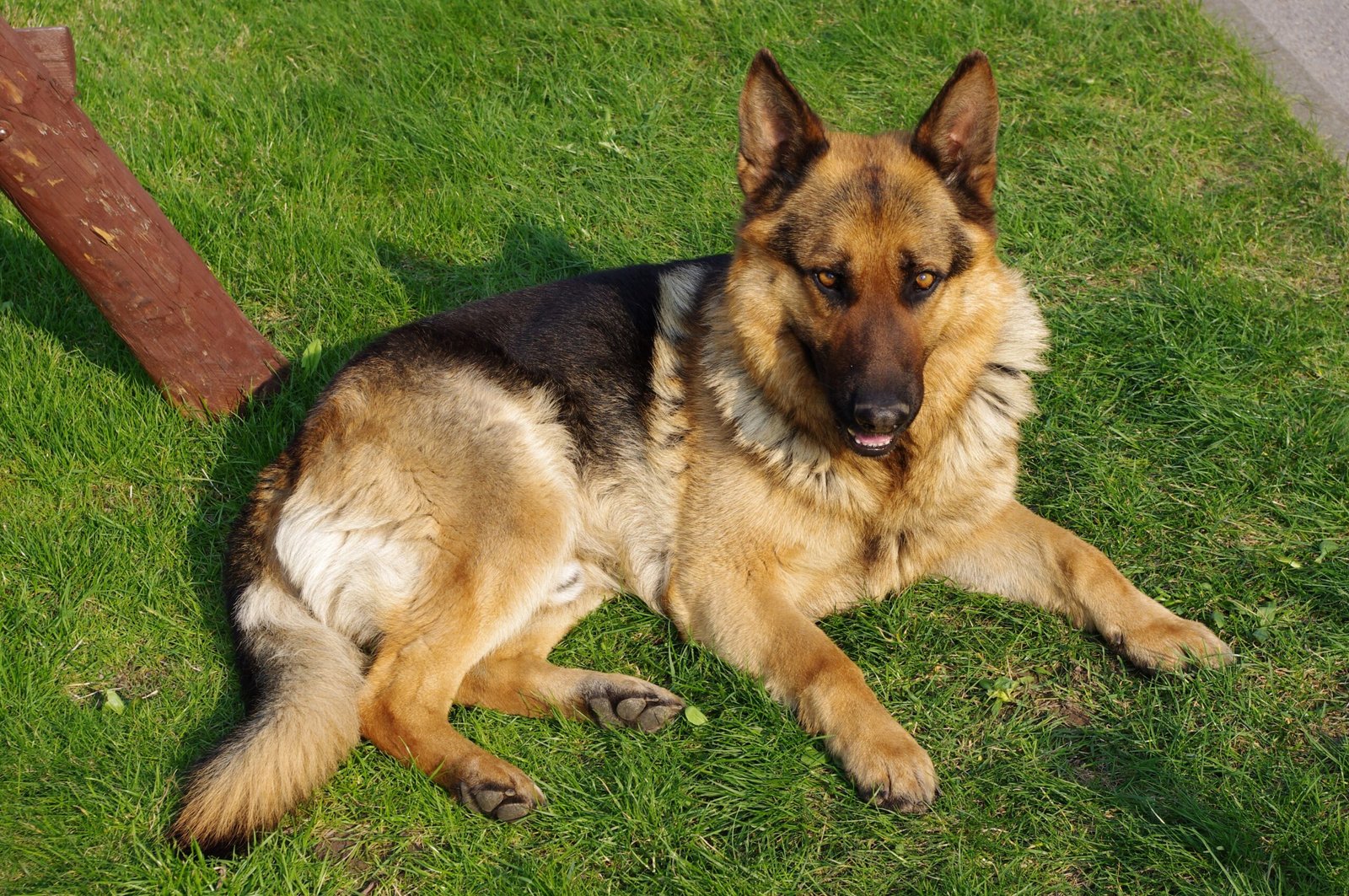When it comes to our beloved furry friends, we often think about the joy and companionship they bring into our lives. Yet, behind those wagging tails and playful barks, some dogs face unique health challenges that require extra attention and care. Are you ready to discover which breeds need a little more TLC to stay healthy and happy?
Some dog breeds come with big personalities—and a few health quirks that require a little extra TLC. Whether it’s the Bulldog’s breathing issues or the Dachshund’s sensitive spine, knowing what to expect can make all the difference in their well-being. With regular vet visits, a tailored diet, and mindful exercise, many of these pups can live long, happy lives. Being aware of a breed’s specific health risks helps you prepare and care for them more confidently. Let’s take a look at 12 dogs that may need a bit more attention to stay at their healthiest.
Bulldogs: Breathing and Skin Concerns

Bulldogs, with their charmingly wrinkled faces and stout bodies, are a favorite among many dog lovers. However, these adorable traits come with their own set of health issues. Bulldogs often experience breathing difficulties due to their short snouts, a condition known as brachycephalic syndrome. This can make it hard for them to breathe, especially during exercise or in hot weather. Additionally, their skin folds can trap moisture and bacteria, leading to skin infections. Regular cleaning and monitoring of these areas can help prevent problems. Bulldogs require a loving owner who is attentive to these needs, ensuring they lead a comfortable life.
German Shepherds: Hip Dysplasia Challenges

German Shepherds are known for their intelligence and loyalty, but they are also prone to hip dysplasia, a genetic condition where the hip joint doesn’t fit properly into the hip socket. This can lead to arthritis and pain as the dog ages. Owners of German Shepherds should be vigilant about their dog’s weight and provide joint supplements as needed. Regular vet check-ups and maintaining a healthy diet and exercise routine can help manage this condition. Despite these challenges, the companionship of a German Shepherd is unmatched.
Poodles: Prone to Eye Disorders
Poodles, whether toy, miniature, or standard, are elegant and intelligent dogs. Unfortunately, they are susceptible to several eye disorders, such as progressive retinal atrophy, which can lead to blindness. Regular eye examinations can catch problems early, and sometimes corrective surgery can help. Staying informed about the signs of eye issues and seeking veterinary advice promptly is crucial. Despite these challenges, poodles bring a touch of class and joy to any household.
Boxers: Heart Health Considerations

Boxers are energetic and playful, making them a popular choice for families. However, they are predisposed to heart conditions, particularly aortic stenosis and cardiomyopathy. These heart issues can be serious, requiring medication and lifestyle adjustments. Regular heart screenings from a vet can help catch these conditions early. With proper care and attention, Boxers can lead active and fulfilling lives, bringing laughter and love to their families.
Cavalier King Charles Spaniels: Mitral Valve Disease

Cavalier King Charles Spaniels, with their gentle eyes and affectionate nature, are prone to mitral valve disease, a heart condition that can lead to heart failure if not managed. Regular heart check-ups and medication can help manage the disease. Owners should be aware of symptoms like coughing or lethargy, which may indicate heart issues. These dogs require a calm and loving environment to thrive, providing endless affection in return.
Dachshunds: Back Problems

Dachshunds, with their distinctive long bodies and short legs, are prone to intervertebral disc disease (IVDD), which affects their spinal discs. This can cause pain and even paralysis in severe cases. Owners should be cautious about their Dachshund’s activity, avoiding activities like jumping that may strain their back. Maintaining a healthy weight is also crucial to prevent added pressure on their spine. Despite these challenges, Dachshunds are spirited and loyal companions.
Labrador Retrievers: Obesity and Joint Issues

Labrador Retrievers are known for their friendly disposition and boundless energy. However, they are prone to obesity, which can exacerbate joint problems like arthritis. A balanced diet and regular exercise are essential to keep them healthy. Owners should monitor their Labrador’s weight and consult with a vet for dietary advice if needed. With the right care, Labradors make wonderful family pets, always ready for an adventure.
Chihuahuas: Dental Health Concerns
Chihuahuas, small and full of personality, often face dental issues due to their tiny mouths. Regular dental care, including brushing and professional cleanings, is crucial to prevent tooth decay and gum disease. Owners should also be mindful of their Chihuahua’s diet, avoiding foods that can lead to dental problems. Despite their size, Chihuahuas have big hearts and are fiercely loyal to their owners.
Rottweilers: Bone and Joint Problems

Rottweilers are strong and confident dogs, but they are prone to bone and joint issues, including hip and elbow dysplasia. These conditions can lead to pain and mobility problems. Owners should focus on maintaining a healthy weight and providing joint supplements if recommended by a vet. Regular exercise tailored to their needs can also help keep them fit. With the right care, Rottweilers are protective and loving companions.
Shih Tzus: Eye and Breathing Issues

Shih Tzus, with their luxurious coats and sweet nature, often face eye problems such as cataracts and dry eye. Their short noses can also lead to breathing difficulties. Regular grooming and eye care are essential to keep them healthy. Owners should be attentive to any signs of discomfort or vision changes. Despite these concerns, Shih Tzus are affectionate and make excellent companions for those who appreciate their unique charm.
Beagles: Epilepsy and Obesity

Beagles are curious and friendly dogs, but they are prone to epilepsy and obesity. Seizures can be managed with medication, and regular vet visits are important to monitor their condition. A balanced diet and regular exercise are crucial to prevent obesity. Despite these health challenges, Beagles are known for their cheerful disposition and make wonderful family pets.
Yorkshire Terriers: Tracheal Collapse and Dental Issues

Yorkshire Terriers, or Yorkies, are small but full of spunk. They are prone to tracheal collapse, a condition affecting their windpipe, and dental issues due to their tiny mouths. Owners should be cautious with collars and opt for harnesses to prevent pressure on their trachea. Regular dental care is also essential. Despite these challenges, Yorkies are affectionate and lively companions, bringing joy to those who love them.
In conclusion, while these breeds may face specific health challenges, with the right care and attention, they can lead happy and fulfilling lives. Each breed brings its own special qualities to the table, offering unconditional love and companionship. As responsible pet owners, understanding and addressing these health concerns can ensure our furry friends remain by our side for many joyful years. Which of these breeds would you consider adding to your family, knowing the care they require?

Linnea is a born and bred Swede but spends as much time as possible in Cape Town, South Africa. This is mainly due to Cape Town’s extraordinary scenery, wildlife, and atmosphere (in other words, because Cape Town is heaven on earth.) That being said, Sweden’s majestic forests forever hold a special place in her heart. Linnea spends as much time as she can close to the ocean collecting sea shells or in the park admiring puppies.






